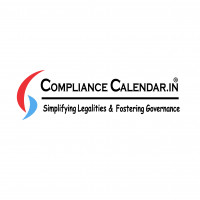CSR-1 Registration Process for NGOs

Strong 8k brings an ultra-HD IPTV experience to your living room and your pocket.
What is CSR?
Corporate Social Responsibility (CSR) is a self-regulating business model that enables companies to be socially accountable—to themselves, their stakeholders, and the public. Through CSR-1 Registration initiatives, businesses contribute positively to society while enhancing their brand image and maintaining ethical practices.
CSR Meaning in India
In India, CSR refers to the mandatory compliance imposed on certain companies under the Companies Act, 2013. Section 135 mandates that companies meeting specified financial thresholds must allocate a portion of their profits to social development projects. This regulation has transformed CSR from voluntary charity to a structured, strategic endeavor aligned with national development goals.
Evolution and Importance of CSR
CSR has evolved from philanthropic donations to strategic partnerships with NGOs that really impact on them. With sustainability and ethics becoming business pillars, CSR plays a vital role in aligning corporate goals with societal needs.
CSR Applicability – Who Needs to Comply?
Companies Covered Under CSR Provisions
CSR Applicability is defined under the Companies Act, 2013. The following companies are required to undertake CSR activities:
• Companies with a net worth of ₹500 crore or more
• Turnover of ₹1000 crore or more
• Net profit of ₹5 crore or more during any financial year
Financial Thresholds and Legal Applicability
Eligible companies must spend at least 2% of their average net profits of the last three financial years on CSR activities. Failing to do so attracts penalties and reputational risk.
CSR Registration – The First Step for NGOs
Why CSR Registration is Necessary
NGOs, Trusts, and Societies must undergo CSR-1 Registration to be eligible to receive CSR funds from companies. This ensures transparency and accountability in fund utilization and project execution.
Role of NGOs in CSR Implementation
NGOs act as the executing partners for corporates looking to fulfill their CSR obligations. From planning and executing projects to impact assessment, NGOs are central to the CSR ecosystem.
The CSR-1 Form
What is Form CSR-1?
Form CSR-1 is the registration form prescribed by the Ministry of Corporate Affairs (MCA) for NGOs seeking eligibility to undertake CSR activities funded by corporates.
Who Should File CSR-1?
• Registered NGOs under Section 8 of Companies Act
• Registered Societies
• Registered Public Trusts
All must have a 12A and 80G registration under the Income Tax Act.
Prerequisites Before Filing
• Valid PAN Card
• 12A and 80G certificates
• Registration certificate of the entity
• Digital Signature Certificate (DSC) of the authorized signatory
DSC Requirement for Authorized Signatory
A Class II or III DSC is essential for signing the CSR-1 form digitally. Ensure it's active and correctly linked to the authorized person.
Online Filing Procedure at MCA Portal
• Visit www.mca.gov.in
• Navigate to Forms & Downloads
• Download Form CSR-1
• Fill in required details with correct document uploads
• Affix DSC and submit
• Await email confirmation and acknowledgment from MCA
Common Mistakes to Avoid During CSR Registration
• Incorrect document uploads (e.g., outdated 12A certificates)
• Using expired DSCs
• Failing to meet eligibility criteria (e.g., not having 3 years’ track record for some trusts)
• Typos in the name/address that mismatch with PAN records
Post CSR-1 Registration: What Comes Next?
Approval Timeline
Once submitted, MCA usually processes the CSR-1 form within 2–5 working days. A unique CSR Registration Number is allotted upon successful verification.
CSR-1 Number and Certificate
This number confirms the NGO is registered and eligible to receive CSR funds from corporates under Section 135.
Next Steps for Fund Eligibility
• Share CSR-1 number with potential corporate donors
• Showcase approved projects aligned with Schedule VII
• Ensure annual activity and fund utilization reporting
CSR Fund – Access and Utilization
How NGOs Receive CSR Funds
Once registered, NGOs can apply to companies or CSR portals by submitting proposals. Corporates fund them for eligible CSR Activities.
Compliance and Reporting Responsibilities
Post funding, NGOs must:
• Maintain detailed expenditure records
• Submit periodic progress reports
• Assist in third-party impact assessments
Banking and Financial Records Requirements
Separate CSR accounts and auditing mechanisms should be in place to maintain transparency.
CSR Activities Eligible for Funding
Schedule VII Activities
The Companies Act outlines permissible CSR activities such as:
• Promoting education
• Gender equality and women empowerment
• Healthcare and sanitation
• Environmental sustainability
• Rural development
Areas of Focus
Most CSR funds go to:
• Education & skill development
• Health & sanitation
• Sustainable livelihoods
• Renewable energy projects
Creating Impactful Projects
Proposals with measurable outcomes and long-term impact have a higher chance of being funded.
Impact of CSR-1 Registration on NGOs
Enhanced Credibility
Being listed with the MCA builds trust among corporates and donors.
Broader Funding Opportunities
CSR-1 registration opens doors to a wide pool of corporate CSR funds.
Long-Term Sustainability
Access to funds allows NGOs to expand, innovate, and create lasting change.
Renewal and Validity of CSR Registration
Is Renewal Required?
Currently, CSR-1 registration does not require periodic renewal. However, any change in organizational details must be updated promptly.
How to Update Information
Changes like address, governing body, or registration documents should be reported to MCA using appropriate forms and authorizations.
Case Studies – Successful NGOs Registered Under CSR-1
• Pratham Education Foundation: Received CSR funding from Infosys to scale rural education programs.
• Goonj: Partnered with HUL and others for disaster relief and rural development.
• Smile Foundation: Leveraged CSR funds from several corporates to run health on wheels initiatives.
Government and Legal Compliance for CSR NGOs
• Must file annual activity reports
• Provide audited financial statements
• Submit impact assessment reports for large-scale projects
Challenges Faced by NGOs in CSR-1 Registration
• Limited digital literacy for online filing
• Difficulty obtaining DSCs
• Lack of knowledge on Schedule VII alignment
Expert Tips for a Smooth CSR-1 Registration
• Hire legal consultants or CS firms for document preparation
• Digitize all compliance documents early on
• Stay informed with MCA updates and CSR amendments
Conclusion
CSR-1 Registration is a pivotal step for NGOs aspiring to collaborate with corporate entities under India’s CSR framework. It not only validates the NGO’s credibility but also opens avenues to access CSR funds for impactful social projects. By completing the CSR registration process and adhering to compliance norms, NGOs can actively participate in nation-building initiatives. CSR meaning, applicability, and the right way to file CSR-1 ensures smoother navigation of the legal landscape. As corporate involvement in CSR activities continues to grow, registered NGOs stand to gain long-term benefits, enhanced funding, and stronger community impact. Timely and accurate registration is not just a formality—it’s a gateway to growth, trust, and sustained partnerships in India’s social development journey.
Note: IndiBlogHub features both user-submitted and editorial content. We do not verify third-party contributions. Read our Disclaimer and Privacy Policyfor details.







